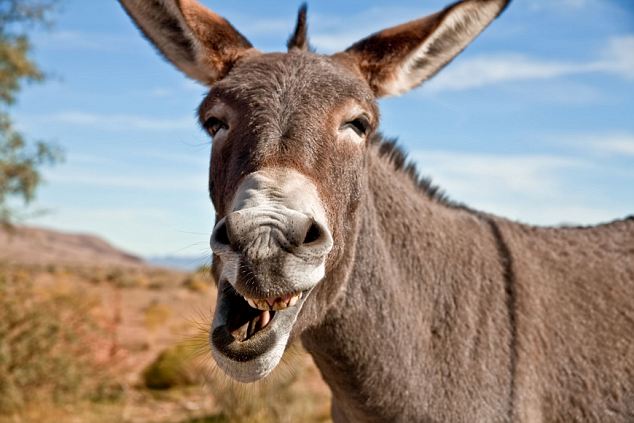JUDY WOODRUFF: The human-animal connection has long been known for its healing qualities. We love our dogs. We love our cats. And you might have heard of equine therapy, working with horses to help treat mental health conditions. But, as Cristina Quinn from PBS station WGBH in Boston explains, there's another animal in town that is gaining favor in the therapy world.
CRISTINA QUINN: It's only his fourth visit to the farm, but 8-year-old Memphis Rose looks like an old pro, feeding donkeys Pumpkin and Jack, alongside with his licensed counselor, Megan Moran.
MEGAN MORAN, Site Director, Cultivate Care Farms: You know things about donkeys. What do donkeys like?
MEMPHIS ROSE, Cultivate Care Farms Client: They like hay.
MEGAN MORAN: We know they like hay. We know they like food. So maybe we could motivate them. What do you think?
MEMPHIS ROSE: Yes. MEGAN MORAN: OK.
CRISTINA QUINN: Memphis started coming to Cultivate Care Farms in Bolton as part of a treatment plan for his autism. He says, when he's here, he feels calm and happy.
MEGAN MORAN: What is it that makes you happy being out here?
MEMPHIS ROSE: That the animals are covered in fur, and when you pet them, they feel soft.
CRISTINA QUINN: They're soft. They're cute. And it turns out, donkeys, in particular, can help people with autism learn how to read social cues.
MEGAN MORAN: So now you can pet them, right, because they're close.

CRISTINA QUINN: While animals have long been used to help treat mental health issues, there is no hard science to back up why it works. Still, there is no doubt that animals in some cases can help kids with their anxiety.
MEGAN MORAN: Their needs are pretty basic and concrete. So you can get a lot of cause and effect, which is really helpful, especially when clients are then needing to figure out how to navigate the real world.
CRISTINA QUINN: And the real world can be tough for a kid with autism. Memphis' mom, Paula, says, before coming to Cultivate farms, he struggled with the long school day.
PAULA ROSE, Mother: He would come home from school very anxious and angry and just, you know, go to his room and scream, because what's happening in school is, all those feelings and those anxieties are being, like, repressed.
CRISTINA QUINN: But since he started hanging out with Megan, Pumpkin, and Jack a few weeks ago, the daily meltdowns have tapered off to maybe one or two a week.
PAULA ROSE: I think it's easier for him to come and talk to Megan because he sees her almost like a friend, and this is like a very laid-back place, more than just going into an office and talking to a doctor.
CRISTINA QUINN: That's part of the idea behind the care farm approach, taking therapy out of the clinical setting.
MEGAN MORAN: We can really try out situations where, what would you do in this type of conflict, or how can you socialize or spend time in another person's space? Like, what is appropriate?
CRISTINA QUINN: Founder and executive director Andrew Lapin says what takes months in an office setting takes only weeks here.
ANDREW LAPIN, Founder and Executive Director, Cultivate Care Farms: I think it's important that we consider donkeys more in treatment, that we have put this huge emphasis on horses, as these beautiful and majestic creatures, which they are, and there's a lot of humans that don't identify as beautiful or majestic. But, with a donkey, you catch just about everyone.
CRISTINA QUINN: Helping create an environment where children with special needs can feel more comfortable with themselves and their surroundings. For the PBS NewsHour, I'm Cristina Quinn in Bolton, Massachusetts.
JUDY WOODRUFF: I love that story.











